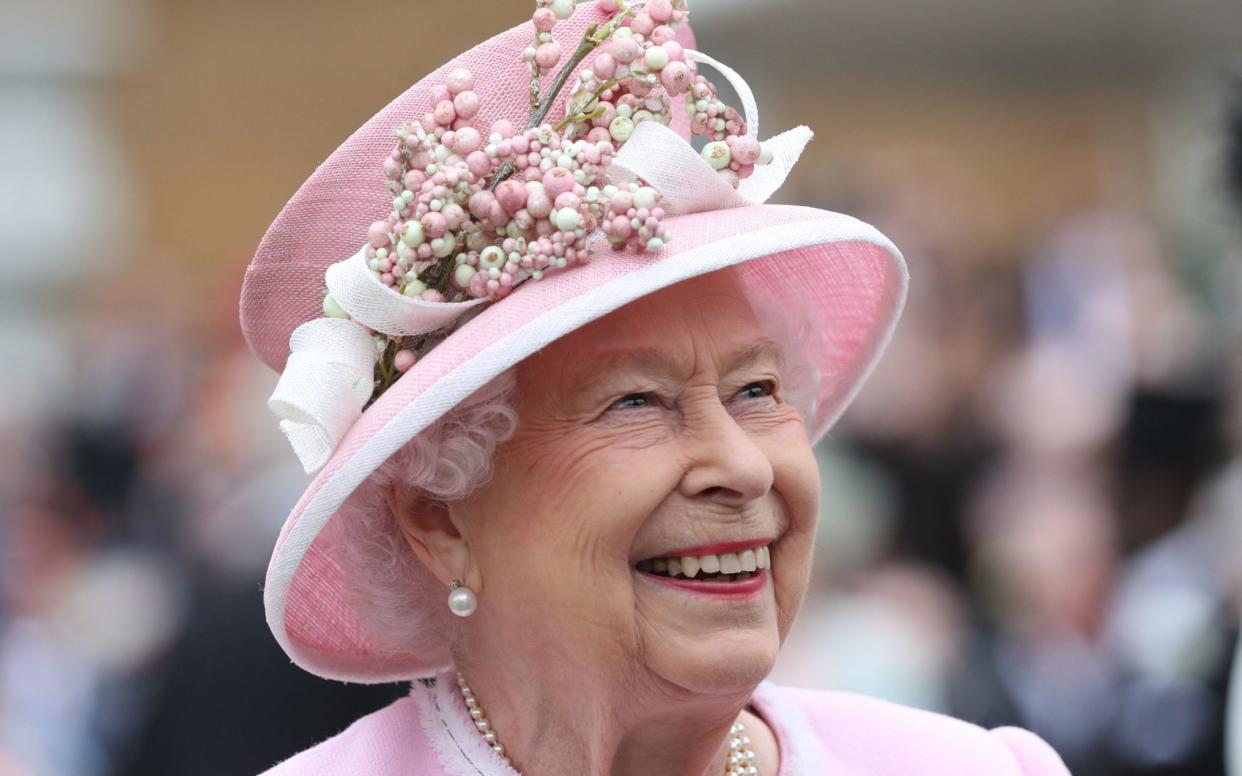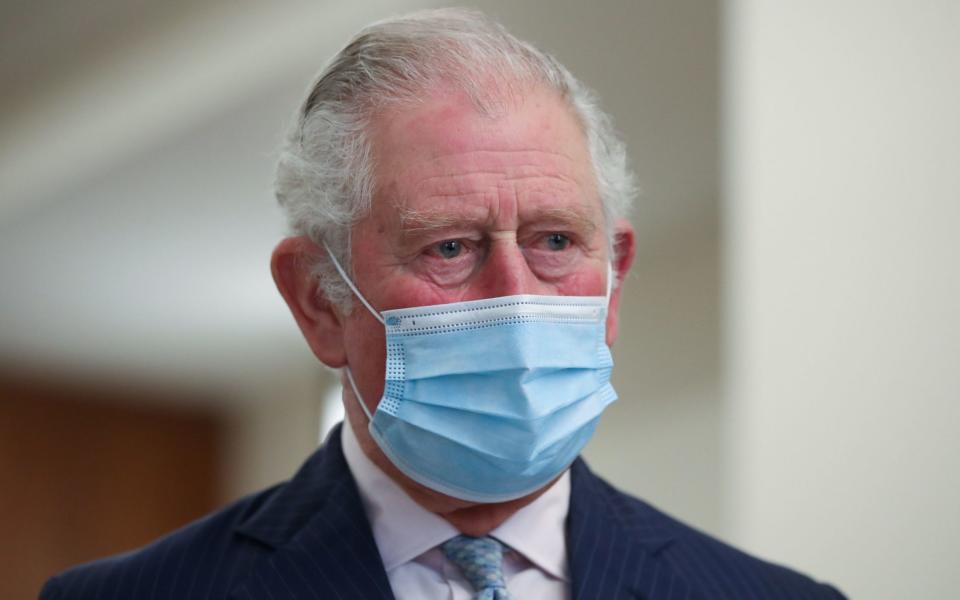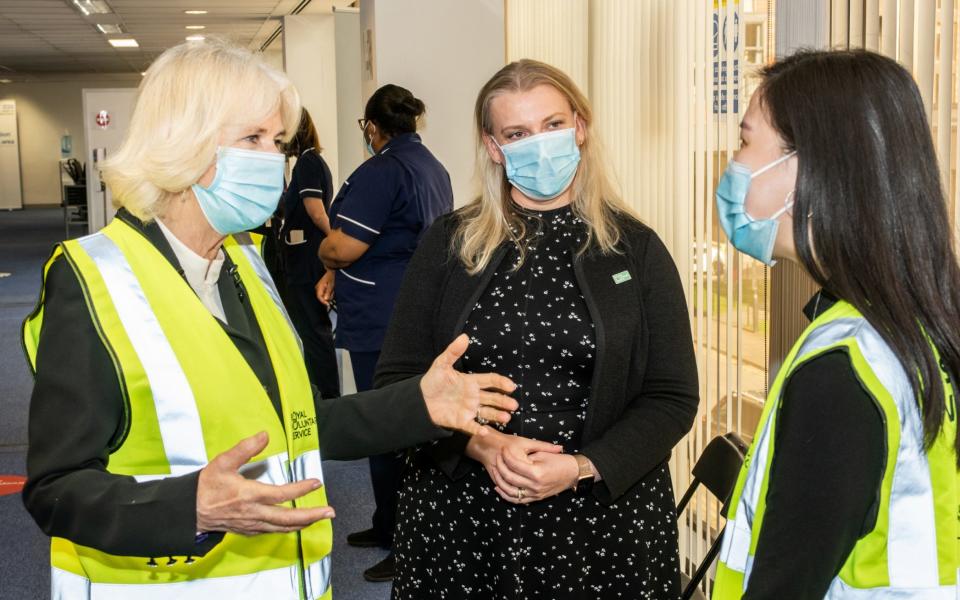Queen's championing of nation's vaccine efforts shows her personal commitment in a time of crisis

Her pregnancies had been kept more or less a mystery and little was said about the Royal births. But when it came to discussing whether her children had been vaccinated, the Queen was uncharacteristically candid.
Amid growing public concern in Britain over the introduction of a vaccine to prevent poliomyelitis, commonly shortened to polio, the monarch let it be known that Prince Charles and Princess Anne had both had the injections.
It came as some children in the US had developed polio and others had died after taking the new jabs, which was introduced in the UK in 1956.
Recognising that parents would be put off having their children inoculated, the then 30-year-old Royal mother revealed to the press that Charles, eight, and six-year-old Anne had been given two injections a month apart by Dr Wilfrid Percy Sheldon, the 55-year-old Harley Street specialist who had served the Queen since her coronation.
She was therefore among 200,000 British mothers who agreed to their children receiving the injection in the first year of its introduction.
Newspapers carried the story on January 23, 1957, with the Daily Telegraph headline declaring at the time: “Royal children get polio inoculations”.
The report stated: “The decision to have her children inoculated was taken by the Queen and Duke of Edinburgh in consultation with their doctor. They must have been aware of the effect of their decision on the public. Many parents will regard it in the nature of a vote of confidence in the vaccine.”
It was one of very few public interventions made by the Queen during her 68-year reign. As head of state, Her Majesty constitutionally remains publicly politically neutral, but when the 94-year-old monarch has spoken out, it has always been careful, but deliberate.
Few will forget the subtle way she called for “common ground” and “never losing sight of the big picture” during a speech at the Women’s Institute in 2019 at the height of the Brexit debate.
Or the time she expressed the hope that voters will “think very carefully about the future” before the Scottish independence referendum in 2014 while meeting a member of the public outside Crathie church near Balmoral.
In the case of raising awareness of the benefits of the Covid-19 vaccine, however, the Queen appears on a personal mission.
Before she and Prince Philip, 99, were vaccinated at Windsor Castle on January 9, the palace appeared reluctant to speculate at all on when they would be receiving the jab, fearing it would open the floodgates on future health enquiries.
Yet having been briefed on the ‘anti-vaxx’ debate and vaccine hesitancy, particularly among the black, Asian and minority ethnic (BAME) community, the Queen resolved that the Royal family should be at the forefront of raising awareness.
As well as directly requesting Tuesday’s video conference call with doctors at the forefront of the rollout, she was also instrumental in mobilising her nearest and dearest to spread the word.
It is certainly significant that having undertaken no physical engagements since before Christmas, the Queen, the Prince of Wales, the Duchess of Cornwall, the Duke and Duchess of Cambridge and the Countess of Wessex have all carried out vaccine-related duties over the past fortnight.
As one well-placed royal insider put it: “The Royal family as a whole have been getting behind the campaign, everyone has been encouraged to support it and they have been very keen to do so.”
Last week, Prince Charles and his wife Camilla met volunteers undertaking clinical vaccine trials at the Queen Elizabeth Hospital in Birmingham.

On Monday, Prince William visited a vaccination centre at the King’s Lynn Corn Exchange in Norfolk, to pay tribute to the efforts and dedication of staff. It came after he and his wife Kate had spoken to nursing students in Ulster and the Duke had held Zoom calls with NHS workers and military personnel thanking them for their efforts.
On Tuesday, Camilla, in her capacity as patron of Royal Voluntary Service, joined volunteers at Wembley Vaccination Centre, to express the nation's gratitude.
Then on Thursday, Sophie undertook her first shift as a St John Ambulance Care Volunteer at an NHS vaccination centre.
The team effort reflects the Queen’s sentiments at the beginning of the pandemic, when she released a statement reminding the nation that its "history has been forged by people and communities coming together to work as one".
Issued on March 19, four days before the first lockdown, she declared: "You can be assured that my family and I stand ready to play our part.”

According to a royal aide, Tuesday’s call, in which the Queen spoke about the importance of “thinking about other people rather than themselves," was an extension of that statement, and her “We’ll Meet Again” speech three weeks later.
“It reflects her belief that everyone should come together,” they said.
The intervention also demonstrates the importance the Queen attaches to her role as “Head of Nation”.
As the Sovereign Grant report released by Buckingham Palace states every year: “The Sovereign’s role comprises two distinct elements: The role of Head of State, which is a formal constitutional concept, common to all nations, and involves the official duties which The Queen, by constitutional convention, must fulfil.
And: “The role of Head of Nation, a much more symbolic role in the life of the Nation, involving duties which are not directed by the constitution but which The Queen carries out where appropriate or necessary.”
The Queen, speaking in 2020:
Comprising four key elements – unity and national identity, continuity and stability, achievement and success, and support of service – the report reiterates: “The Queen’s role as Head of Nation is as significant as Her role as Head of State”.
Much has been written about the definition of public service, not least in light of the Duke and Duchess of Sussexes’ attempts to redefine what it means to be a Royal from their self-imposed exile in the US.
Yet in championing our world-leading vaccination roll out, the Queen is not only flying the flag for Britain, but the people she vowed to serve nearly seven decades ago in the spirit of togetherness.
For as she herself put it on her 21st birthday: “I shall not have strength to carry out this resolution alone unless you join in it with me.”

